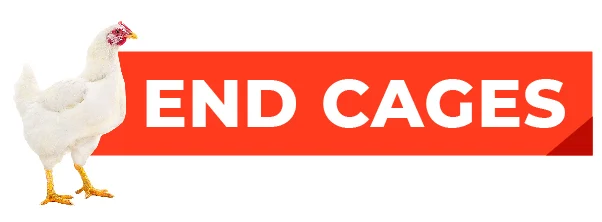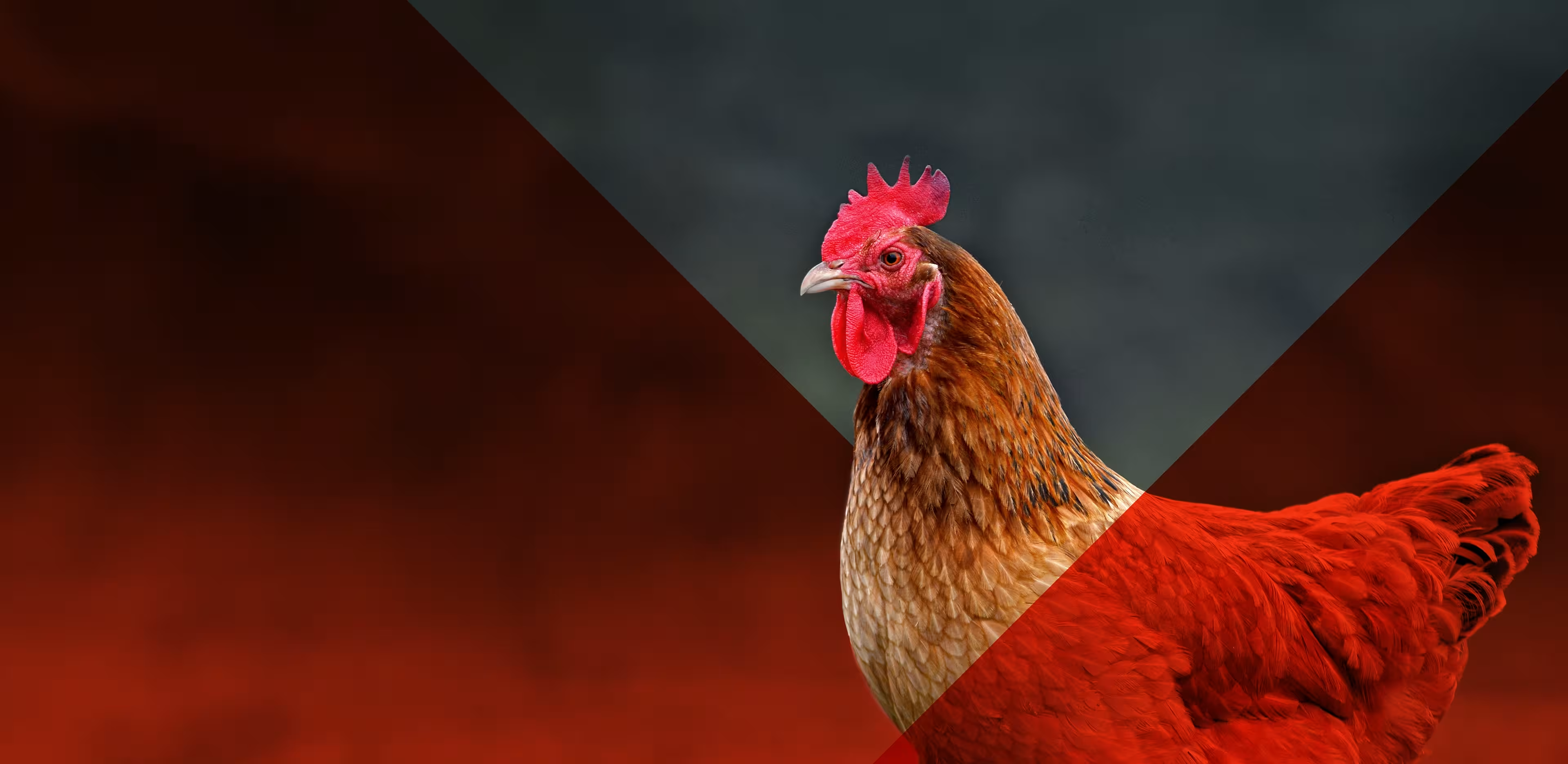




The OWA has released its first-ever Fair and Fowl: Global Companies Edition report. Find out which companies are honoring their cage-free egg commitments in 2024.

With so many exciting developments in the global movement towards sourcing cage-free eggs, it may be challenging for consumers and corporations alike to track recent progress and developments across sectors, regions, and timelines.
In response to this need, the Open Wing Alliance (OWA) created its inaugural Fair and Fowl: Global Companies Edition report—a comprehensive ranking of all companies with global cage-free egg commitments. The OWA’s data-backed findings align with conclusions from a recent OWA report about the global cage-free fulfillment rate: In 2024, the global cage-free movement is showing no signs of stopping, or slowing.
The report rankings separate the “early birds” (companies publicly reporting cage-free progress) from the “bad eggs” (companies showing no public progress). Read on to find out which companies are honoring their promises to their customers, and which companies are falling behind by failing to publicly deliver on their promises.
The 2024 Fair and Fowl: Global Companies Edition
The report findings prove that the cage-free egg movement is becoming the global standard: most global companies are reporting progress against their commitments, or have fully transitioned over to a cage-free egg supply. However, there are some surprising outliers that are lagging behind their competitors on this crucial corporate social responsibility component.
"The growing number of companies rapidly advancing towards 100% cage-free supply chains demonstrates that responsible sourcing is a shared value in today's global market,” says Hannah Surowinski, Senior Associate Director of Global Corporate Relations, Open Wing Alliance. “This report emphasizes the importance of corporate transparency and accountability. With increasing consumer demand and global legislation banning these inhumane practices, companies that fail to remove cruel, outdated cages from their egg supply chains risk falling further behind their competitors.”
Which global companies are doing well?
Many companies are well on their way to 100% cage-free supply chains—including global industry leaders like Compass Group (foodservice), Hilton Hotels & Resorts (hospitality), Unilever (manufacturer), Spur Corporation (restaurants), and Lagardère Travel Retail (retailer). Compass Group is reporting progress globally and regionally, published a regional roadmap to going 100% cage-free, and is committed to fulfilling in Asia, an emerging cage-free market. Hilton and Unilever are reporting progress globally and regionally, and have published plans for reporting. Leading the way in their respective sectors are Spur Corporation (which has a considerable presence in emerging markets), and Lagardère Travel Retail (reporting regionally); both companies are making strong global progress on their commitments.
Which global companies are failing to show progress?
Some companies are featured for failing to show any public accountability on their commitments. These global companies and their industry sectors include Millennium Hotels (hospitality), Colombina (manufacturer), Wagamama (restaurant), and REWE Group (retailer). In marked contrast to Hilton and Unilever, Millennium Hotels and Colombina have not reported any meaningful progress on their cage-free promises since making their commitments in 2019. Colombina also minimized its original commitment, and has not reinstated what it originally promised. Wagamama minimized its original commitment as well, and has reported ambiguous progress. REWE Group has not reported progress on its full global commitment.
What is greenhushing?
Companies refusing to publicly report progress against their commitments are seen as greenhushers. Greenhushing is when a company hides its progress on its sustainability goals to avoid greenwashing allegations or be held accountable to their commitments. However, research shows that this silence is also harmful and goes against consumer wants. By reporting cage-free progress, companies can prove to their customers that responsible sourcing and corporate accountability are shared values.
Why is going cage-free important?
Barren battery cages are cruel to egg-laying hens, causing them psychological distress, and increasing their likelihood of debilitating physical injuries. These cages provide each hen with less usable space than an A4 sheet of paper—spaces so small and cramped that they don’t even allow them to fully spread their wings. And though enriched cages provide more welfare improvements for hens, their movements are still restricted by the limited cage height. Going cage-free is good for suffering animals; their quality of life improves when they can move around freely and engage in their normal behaviors. It’s also good for business, as consumer demand for higher animal welfare standards grows worldwide.
What can I do to help?
For corporations looking to join the growing global cage-free movement, the OWA offers resources and support to facilitate their transitions.
For consumers who want to keep changing the lives of millions of animals around the world, take campaign actions against corporate laggards to encourage them to create the cage-free future hens deserve today.







